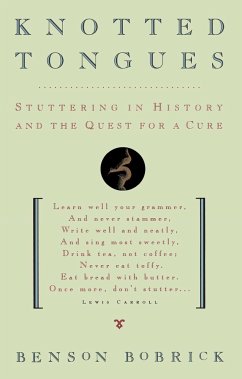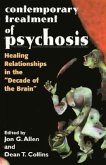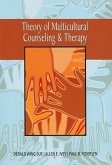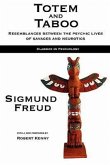Two and a half million Americans - fifty-five million people worldwide - stutter. Though their baffling malady has been subjected to endless analysis for over 2,500 years, most endure it without hope of a cure. The very anticipation of stuttering can dominate a victim's social and emotional life. If the majority suffer in anonymity, famous figures down through the ages - Moses, Charles I, Lewis Carroll, Henry James, W. Somerset Maugham, Winston Churchill, and Marilyn Monroe among them - have also known the isolation and trauma of living with knotted tongues. Indeed, Charles Dickens once aptly described stuttering as "a barrier by which the sufferer feels that the world without is separated from the world within". In this fascinating and original social history, which combines literary scholarship with historical research, Benson Bobrick explores one of the great conundrums of medical history, its impact on the lives of the afflicted, and the astonishing therapeutic practices it has spawned. Demosthenes was obliged to labor up steep inclines with lead plates strapped to his chest and to declaim over the roar of the ocean with pebbles in his mouth; one 16th-century Italian physician prescribed nosedrops combining beetroot and coriander to help "dehumidify" the brain; and a Native American tribe had stutterers spit through a hole in a board "to get the devil out of their throats". At one time or another, stuttering has been popularly traced to childhood trauma; sibling rivalry; suppressed anger; infantile sexual fixations; deformations of the tongue, lips, or jaw; chemical imbalance; strict upbringing; vicious habit; guilt; approach-avoidance conflicts; and so on, and has been treated byhypnosis, drugs, conditioning, electric shock, and of course, psychoanalysis. Mounting clinical evidence today, however, indicates that stuttering is a neurological problem, possibly involving anomalies of sound transmission through the skull. Genetic research suggests a familial link. While a definitive cure remains elusive, certain therapeutic techniques are effective, as the author explains in a compelling account of his own successful quest for deliverance.
Hinweis: Dieser Artikel kann nur an eine deutsche Lieferadresse ausgeliefert werden.
Hinweis: Dieser Artikel kann nur an eine deutsche Lieferadresse ausgeliefert werden.








